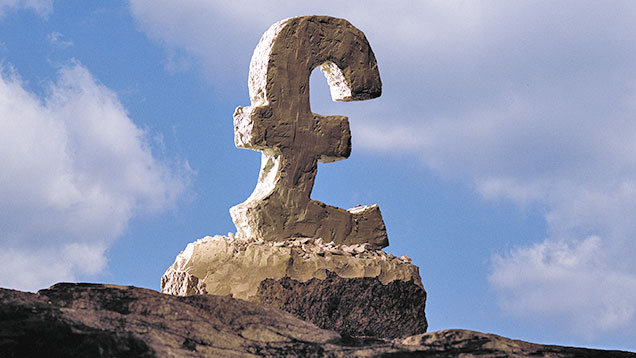5 ways a strong pound hits British farming
 © Rex
© Rex The strong pound – good for trips abroad, bad for British farming.
No one needs telling how fast agricultural prices have fallen. Supplies are running high across the world and UK farmers face further pressure from the strength of their currency.
Sterling has gained 17% on the euro since February and is at its strongest since 2007-08.
It is one element of the “perfect storm” hitting British producers and its impact is felt in several ways.
1. The long view
The adage goes that a weak pound suits UK farmers. The reverse is also true.
Total agricultural income has been significantly higher since 2008, when sterling lost a lot of ground against the euro.
We have also had a global recession, as well as an oil and food price spike. But currency is part of the mix.
2. The big draw
The pound/euro situation makes EU products cheaper for British buyers. For retailers, it becomes very tempting to buy-in more foreign food.
In the first quarter of the year, beef imports were 10% higher and inbound sheepmeat shipments were up 12%.
Pork imports have not risen as dramatically but low prices abroad still exert a downward pull on prices.
3. The hard sell
Exporting is also tougher, with UK products more expensive for overseas customers.
This is particularly painful for lamb producers. One-third of British production is exported, with more than 80% heading for Europe.
On current liveweight prices, a 40kg lamb would be worth €104 (about £75). At last year’s exchange rate, it would have been 16% cheaper.
Linked to this, UK lamb exports from January to March were 19% lower than in 2014.
4. The best buys
It is not all gloom, though. Sterling’s strength means goods the UK must import should be slightly more affordable. This affects inputs such as fuel, feed and fertiliser.
Take soyameal. The Conservatives’ election win saw the pound surge and the price of protein feed dropped off sharply in mid-May.
Prices were already trending down, with decent world stocks and positive planting news. But currency had a short-term influence for the UK.
5. The kicker
In a year of depressed farmgate prices, BPS payments will be significant for farmers’ incomes.
Currency has a bearing on how the payment, divvied up in euros, adds up for British producers. A strong pound means a smaller payout.
The £/€ rate for the 2014 payment, fixed on 30 September, was 78p/€1. This was a 7% drop on the year before.
Since then, the rate has slid to 72p. At that level, the British value of last year’s base entitlements would have shrunk a further 7.4%.
